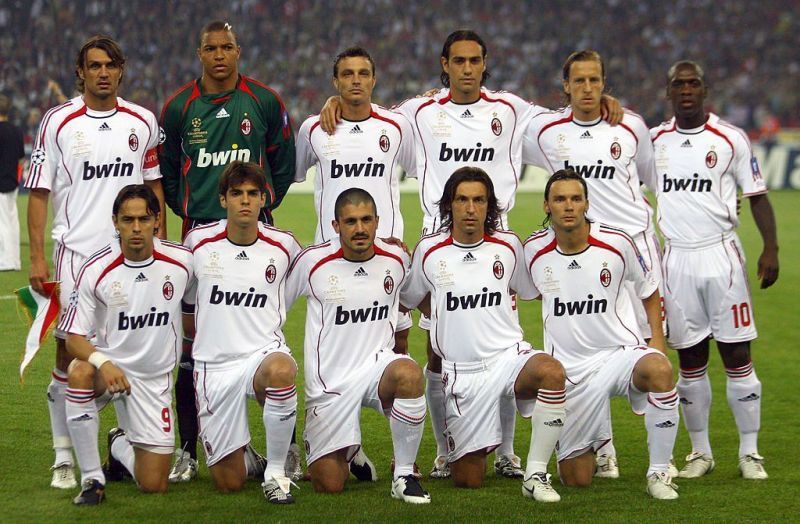
The Fall of the Mighty: AC Milan's descent to Inferno
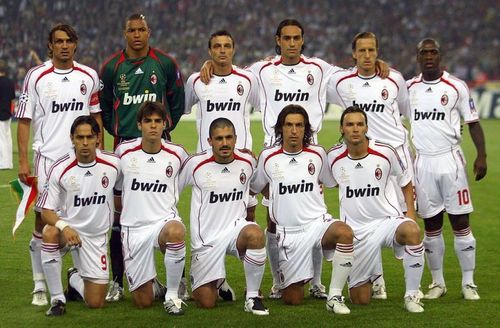
The past does not haunt us. We haunt the past. We allow our minds to focus in that direction. We open memories and examine them. We re-experience emotions we felt during the painful events we experienced because we are recalling them in as much detail as we can. - Augusten Burroughs
So did they, too. When they took to the pitch at the Olympic Stadium in Athens on the night of 23rd May 2007, the lacerations Milan had suffered two years ago seemed to be laid fresh and bare in their minds.
Carlo Ancelotti's men knew they would be fighting two battles that night. While the world held their breaths and anticipated nothing short of a war on the pitch, inside their heads, the Rossoneri found themselves in a skirmish against the evocations of that fateful night in Istanbul.
“It was an incredible loss. Ahead of the 2007 final, my team-mates – who were there for 2005 – were frightened. They were worried about playing against Liverpool again, so it proved a very important win. Even I was quiet before the game, but that’s part of my personality. Many of the others felt a lot before the match, but I tried to treat it like a normal game – even though it was a final." - Massimo Oddo
Pertaining to the words of Herbert Kilpin, the English expatriate who was one of their founding fathers, Milan was a team of voracious devils wearing the red and black strips looking to trounce and scare the living daylights out of their adversaries.
But for this once, seven of those eleven men found themselves shackled and locking antlers with the Inferno that was the devil's abode. They found themselves immured with the very red and black strips they had embroidered their hearts with.
Dida, Alessandro Nesta, Paolo Maldini, Andrea Pirlo, Gennaro Gattuso, Clarence Seedorf and Ricardo Kaka were feeling the heat of the Istanbul nightmare as if it had come to pass just yesterday.
Little did they know that the gods would favour them this time.
90 minutes and two Filippo Inzaghi goals later, AC Milan were wheeling away in vehement jubilation, buoyantly soaking themselves in the glory of their seventh European title.
While the aforementioned seven titans lent a helping hand in lifting the famous silverware, the crevices in the star-spangled squad were crystal-clear than ever; the cracks that later formed the base of the lamentable downfall of one of the greatest clubs on the earth.
The angel who turned into a demon
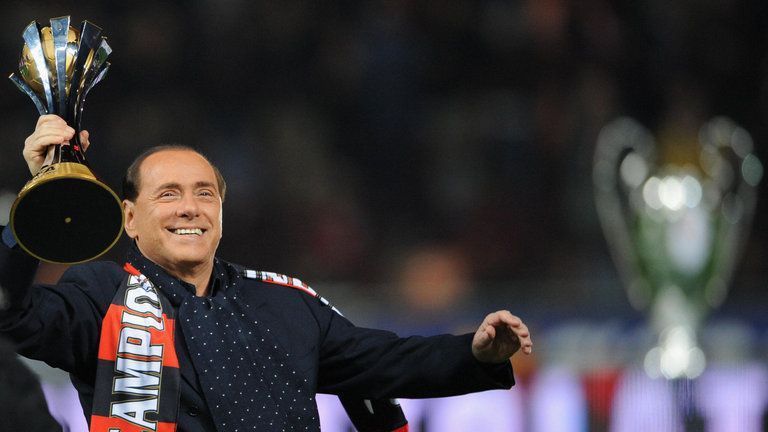
It's in the nature of men, isn't it? To ignore a seemingly dangerous thing, condition or circumstance that looks trivial? And when we get the total blast of how perilous our ignorance proves to be, there's hardly any time for us to make amends.
Now, whether Silvio Berlusconi saw that chink in his thumping great squad of demigods or remained nescient about it is a question only he can answer. However, being the prime minister of Italy and above all, one of the most successful businessmen in Mussolini's nation makes it rather hard to believe he would have been unaware of the snag that would later take the shape of a Gordian knot that destroyed his footballing empire.
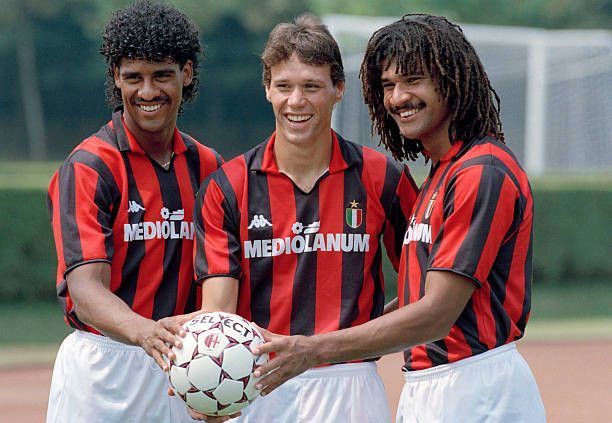
There's a part of Berlusconi's reign, a fable the Milan fans just love reminiscing; A 29-trophy haul that included five Champions League trophies, eight league titles, five Uefa Super Cups and one Club World Cup. In a manner of speaking, Berlusconi was very much the Messiah, the angel who rescued the Rossoneri from its darkest days and led them into a revolution.
His inquisitions of the three Dutch musketeers in Marco Van Basten, Rudd Gullit and Frank Rijkaard and then Arrigo Sacchi, one of the greatest tactical minds in the game's glittering history, kickstarted their era of glory.
Immortal as those names were, Berlusconi failed to know that the bodies were still...earthly and human; that one day they would wear out and the club would need adequate and able successors to safeguard the legacy of San Siro.
However, it's the last great team he built that we need to pay attention to; the troupe of players that won the seventh and the last Champions League title to date.
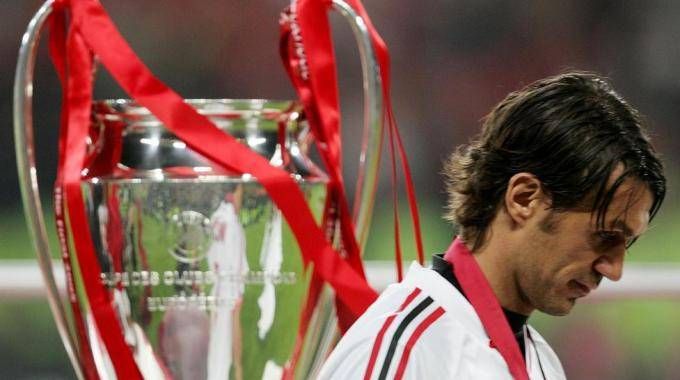
He failed to know, or should we say, ignore the fact that the legendary Paolo Maldini was 39 when he led his team to the final. He perhaps chose to turn a deaf year when his colleagues might have reminded him of the reality that Inzaghi (34), Seedorf (31) and Nesta (31) were steadily marching towards the act of calling time on their sparkling careers.
Only 3 players amongst the squad that conquered Europe were under 30, with every player apart from the artistic Kaka were 28 or above. It was a team of seasoned players protruding experience of the highest class.
Age was reflecting brightly, the very problem Silvio Berlusconi chose to ignore and reap the consequences later. And for not taking care when it mattered, from being the adored saviour that he was, the Italian owner was all of a sudden the demon that the Milan faithful wanted to banish from their beloved club.
The corollaries of financial conundrums
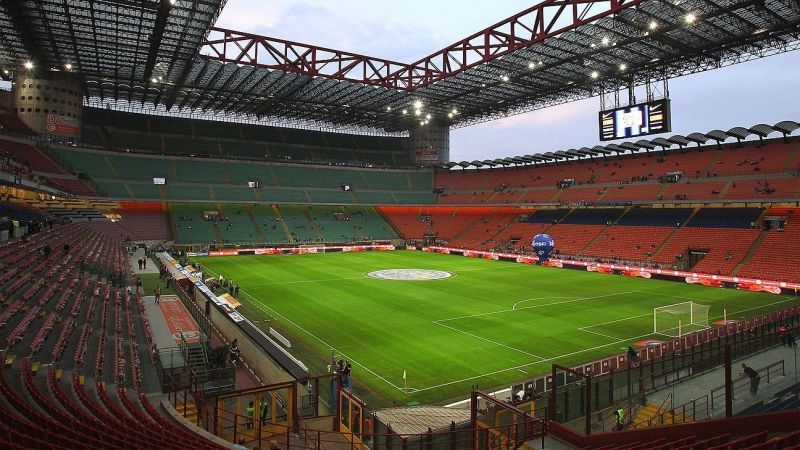
If you ever walk down the memory lane to discern the causes that led to the fall of the giants, for sure, your eyes won't miss the financial conundrums that keep waving frantically at you. The paucity of monetary strength is a common factor in any of the tales about deceased football clubs, and the Rossoneri are no exception to the shortage of wealth.
To start with, Silvio Berlusconi had put the rival Italian clubs to shame with his extravagant spending. But, the Italian prime minister failed to cut off the debts that had haunted the club for almost a decade. But, that was just one of the many factors that strained Milan financially.
The Rossoneri's bank accounts suffered considerably due to their futile attempts to build a new stadium of their own and leave their tenancy at the San Siro behind. Furthermore, the global financial crisis of 2007 played its part in affecting the balance books.
It's unequivocal how the Serie A has not been up to snuff when pitted against other major leagues in Europe in terms of the popularity; the Italian league has seen its appeal plummeting in the recent years. Their adamance on sticking to their age-old defensive style of play and failing to adopt a more offensive and fast-paced method of football can be deemed responsible for the same.
As a result, with the league's revenues from TV rights going downhill; the clubs found themselves miles behind in financial competitions with their Spanish, English and German counterparts.
Last but not the least, the Italian billionaire's crusade in the country's political scene was an indirect curse to the club's wealthy coffers. The groundwork to the 2013 elections in Italy further exacerbated their already weak pecuniary stability with Berlusconi opting to steadily withdraw the financial input in the club.
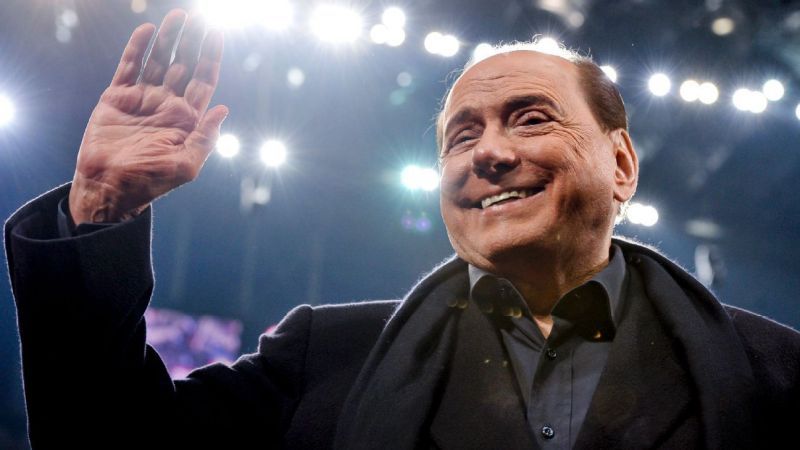
As Italy became a victim of financial turmoil, finance expert Andrea Bricchi, who covers economics for the website PianetaMilan (Milan Planet), threw a light on how the elections incidentally damaged the Italian heavyweights.
Berlusconi is still Italy's richest man. He could still spend €300m a year on transfers, but his political advisers forbid it. In this era of austerity, it would look frivolous and wasteful.
His aides advise him to splash out during electoral campaigns. Milan bought Ibrahimovic, Robinho and Mario Balotelli before recent elections. But they won't let Berlusconi sell the team or spend heavily too often. Both would lose public favour and votes.
Quite clearly, the repercussions in Silvio Berlusconi's political career had an adverse effect on the club, weakening their balance books. The Rossoneri were steadily on the decline from their celestial grace as one of the major powerhouses in Europe.
In such cases, budget cutting is the only option that presents itself - and AC Milan did choose to make up for the losses by signing mediocre players. However, they could have saved themselves of all that misery and the after-effects that came with it.
He was found guilty of tax evasion in 2013 which incurred heavy monetary losses. As if that wasn't enough, a €560 million lawsuit against the club's chief investors, Fininvest, dented the financial stability.